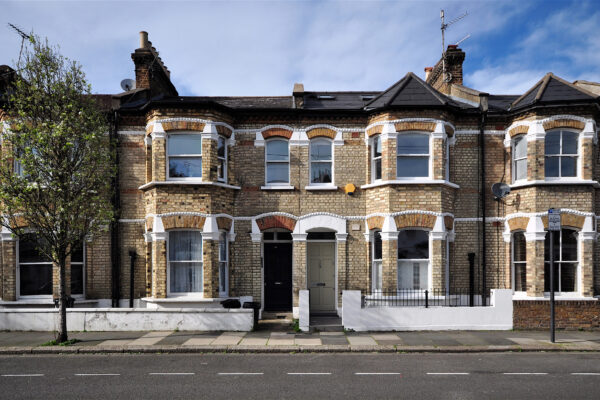Buy tickets now
A Change is Gonna Come

Nicola Muir examines the Government’s plans to implement reforms to the leasehold system
The first wave of reforms to the leasehold system in England has arrived. Last month the Government published its plans for tackling exploitative practices in the leasehold sector. While some of the changes are obvious tweaks to give leaseholders of houses similar rights to those enjoyed by flat owners, others are rather more revolutionary. In particular, ground rents for all future residential leases will be banned and there will be no more leasehold houses.
The Ground Rent ban
Rent is a periodical sum paid in return for the occupation of the land. In the case of long leases, the sum payable has traditionally been very modest. However, in recent times developers have created leases with ground rents which double every 10 years or start low but can be reviewed to a potentially substantial figure. Not only does this impose an ongoing financial burden on leaseholders, it also increases the cost of enfranchising or obtaining a lease extension thereby reducing the value of the property. It is this “Ground Rent Scandal” which was the catalyst for the Government’s review of the leasehold system.
The Government consulted on whether ground rents should be capped at £10 pa. Leaseholder Groups argued that they obtain no benefit whatsoever by paying ground rent and that even a cap at a nominal sum could lead to abuses. On the other side, developers and investors asserted that an economic ground rent was required to provide an incentive for professional landlords to operate in the leasehold market. A ground rent of £10 pa would not allow for adequate reserves to deal with major capital works and would adversely impact on the long-term stewardship of leasehold developments.
In theory, ground rents are unconnected to any maintenance obligations and the costs of management and supervision should be recoverable under the terms of the lease. The Government has therefore decided to legislate to restrict ground rents in future residential leases of houses or flats to a peppercorn. This will bring all new leases into line with lease extensions granted under the Leasehold Reform, Housing and Urban Development Act 1993.
In reality, of course, there is often expenditure in relation to a block of flats which a landlord cannot recover under the service charge provisions. For example, if costs are found to have been “unreasonably incurred” for the purposes of section 19 of the Landlord and Tenant Act 1985 they cannot be recovered but the contractor may still have been paid. If the building leaks and an occupier claims compensation for consequential damage to his flat, this is unlikely to be a service charge item. These shortfalls have to be funded from somewhere and if the block is owned by a lessee owned company, there may simply be no other assets available. Developer/investor landlords will be deprived of their profit element which was previously available as an emergency fund. It seems likely that all new residential leases and the Articles of Association of lessee owned landlord companies will try to ensure that every conceivable item of landlord expenditure is covered.
Older leases are often less comprehensive but will be unaffected by the ban. Although an extension of an existing lease takes effect as a surrender and re-grant, the new regime will provide that when a new longer lease is granted on a voluntary basis, it can retain a ground rent for the remainder of the existing term but the peppercorn policy will kick in for the newly extended part of the lease. It was recognised that leaseholders may sometimes prefer to pay rent in exchange for paying a lower premium for the extension
Other areas of landlord and tenant law will also be affected. For example, if there is no ground rent the risk of waiving the right to forfeit by demanding rent is eliminated. Similarly Sections 166 and 167 of the Commonhold and Leasehold Reform Act 2002 in relation to demands for ground rent and restrictions on forfeiture on the grounds of rent arrears will become redundant.
Mixed use leases, for example, a lease of a shop with a flat above will not be subject to the ban. Similarly, there will be exemptions for retirement properties, community led developments, equity release schemes and home purchase plans.
No more Leasehold Houses
The leasehold system developed over centuries to promote the maintenance and management of multi-occupancy buildings. Somebody has to make sure the roof doesn’t fall in and that the insurance is paid. Rather than covenanting with every other occupier of the block, the leaseholder has a single contract with a landlord who is responsible for ensuring that everyone complies with their obligations. But where the building is a house there is usually no need for a landlord: the householder can mend his own roof and take out his own insurance. Notwithstanding this by 2016/17 one third of the 4.3 million leasehold dwellings in England were houses. It appears, however, that since leasehold lobbyists highlighted the unjustified sale of houses on leases, developers have seen the error of their ways. The number of new-build leasehold houses coming onto the market has already dramatically reduced from 17% in Quarter 1 of the 2017 to 2% of new build houses registered in Quarter 4 of 2018.
The Government now intends to ban the sale of houses on a lease altogether save in respect of various exempt categories, for example, retirement homes, shared ownership properties and National Trust properties. The ban will apply to all new residential long leases (over 21 years) for new build or existing freehold houses. Following the ban, it will not be permissible to register a long lease of a house at the Land Registry. If a lease of a house slips through the net, the leaseholder will be entitled to enfranchise at zero cost as a means of redress.
The vexed question of what is a “house” will also be tackled. We are promised a fully worked up definition but the starting point will be that a “house” will not be any property which is above or below (horizontally divided) another property or associated structure, for example, an underground car park. A house will be a built or erected structure with a significant degree of permanence which constitutes a single dwelling with or without appurtenant property. As under current enfranchisement law, it must be self-contained.
It will still be possible to grant new leases of flats but the Labour Party has announced this week that it plans to ban the sale of leasehold flats as well. This is an altogether more complicated proposition as co-operation is necessary in multi-occupancy buildings. However, the Law Commission is currently consulting on a revised Commonhold regime and this may prove to be an attractive option going forward.
Existing Leasehold Houses
The new legislation will not abolish existing leases of houses but it will grant leaseholders more rights. Leaseholders of houses will be given a Right of First Refusal whereby a landlord intending to sell the freehold of a house will be required to notify the leaseholder of its intention and give him a right of first refusal to buy it. A similar right exists for leaseholders of flats in the notoriously badly drafted Landlord and Tenant Act 1987. As part of the drafting process the Government will consider the need to address the legal loopholes in the 1987 Act provisions and whether those loopholes could also affect houses.
Equal Rights for Freeholders
Of course, just because a house is freehold doesn’t mean there are no shared services on the estate. It is common for freeholders to be required to contribute to the cost of grounds maintenance and the upkeep of entry gates and security systems and so on. On more modern estates, there may be communal gyms, car parks and concierges which all need to be funded via an estate rent charge. Freeholders do not currently enjoy the protections contained in the Landlord and Tenant Act 1985 which restricts the sums recoverable for these services to those which are reasonably incurred. Similarly, the manager of an estate of freehold houses is under no obligation to consult homeowners prior to carrying out major works or entering into long term maintenance agreements. Again this will change under the new legislation. Freeholders on private and mixed tenure estates will be granted equivalent rights to leaseholders to challenge the reasonableness of estate rent charge,
Freeholders who are unhappy with the level of service provided by their existing manager will also be entitled to apply to the First Tier Tribunal for the appointment of a new manager under new rights which will be equivalent to those currently available to leaseholders under Part II of the Landlord and Tenant Act 1987. The Government has not yet decided whether freeholders should also be able to apply for the “no fault” Right to Manage” (available to leaseholders under the Commonhold and Leasehold Reform Act 2002). The Law Commission is in the process of reviewing leaseholders’ rights in this regard and once the outcome of that consultation is available, the question will be revisited.
Improving How Leasehold Properties are Sold
At the moment, transactions involving leasehold properties can take weeks longer than those involving freehold only, largely due to delays in obtaining information from the freeholder or managing agent. The new regime will impose a turnaround time of no more than 15 days to provide the necessary information and will also set a maximum fee of £200 plus VAT for providing it.
Conclusion
The reforms meet some of the demands of leaseholders but provide little comfort for those who already own a property with an onerous ground rent provision. However, undoing contractual obligations which have already been entered into is no easy task.
This article was published in the Estates Gazette on 20th July 2019
This content is provided free of charge for information purposes only. It does not constitute legal advice and should not be relied on as such. No responsibility for the accuracy and/or correctness of the information and commentary set out in the article, or for any consequences of relying on it, is assumed or accepted by any member of Tanfield or by Tanfield as a whole.







